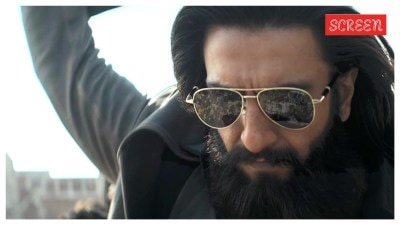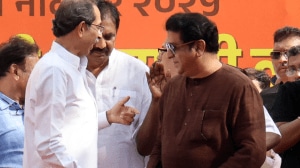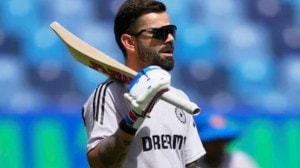CVC loses job,UPA face
SC: Bring in more transparency,open CVC to non civil servants too.
Rejecting every argument trotted out by the government defending the appointment of Central Vigilance Commissioner P J Thomas whos facing a corruption case the Supreme Court today quashed the appointment.
It is declared that the recommendation dated September 3,2010,of the High Powered Committee of P J Thomas as Central Vigilance Commissioner is non-est non-existent in law and,consequently,the appointment is quashed, the Supreme Court pronounced.
The Prime Minister-led committee,the court said,had overlooked the law that the institution of the Central Vigilance Commission is more important than the individual Thomas.
In an unprecedented half-hour reading of the 71-page judgment,in which the key reasons for quashing Thomass appointment were spelt out,Chief Justice of India S H Kapadia who led the three-judge Bench also comprising Justices K S Panicker Radhakrishnan and Swatanter Kumar said the joint recommendation of the PM and Home Minister P Chidambaram disregarding the dissent of the third committee member,Leader of Opposition Sushma Swaraj,without considering the relevant material on Thomas,amounted to official arbitrariness.
The High Powered Committee must take into consideration the question of institutional competency. If the selection of Central Vigilance Commissioner adversely affects institutional competency and functioning then it shall be the duty of the HPC not to recommend such a candidate. Institutional integrity is the primary consideration for the appointment of the Central Vigilance Commissioner. In the present case,this vital aspect has not been taken into account by the HPC8230;, the court said.
However,it added,it did not discount the personal integrity of the candidate meaning Thomas.
Rebutting the governments argument that the Supreme Court has no jurisdiction to question the committees decision,Chief Justice Kapadia,who authored the judgment,observed that the court would certainly intervene if the legality of the decision is doubtful.
We are not sitting in appeal over the opinion of the HPC. But if a statutory body like the HPC,for any reason whatsoever,fails to look into the relevant material having nexus to the object and purpose of the law CVC Act,2003 or takes into account irrelevant circumstances,then its decision would stand vitiated on the ground of official arbitrariness, the court said,adding that the HPCs touchstone should have been public interest for which even proof was not needed.
Toppling the governments version that the Committee had selected Thomas for his personal integrity and after a CVC clearance of him on October 6,2008,the court referred to the very documents provided by Attorney General G E Vahanvati to prove it wrong.
We find that there are at least six notings of the DoPT between June 26,2000,and November 2,2004,which have recommended initiation of penalty proceedings against P J Thomas for his alleged role in the palmolein scam and yet in clearance given by the CVC on October 6,2008,and in the Brief prepared by the DoPT on September 1,2010,and placed before the HPC,there is no reference to the earlier notings, the court said,expressing its surprise at the governments consistent omission over the years.
What is relevant is that these notings were not considered in juxtaposition with the CVC clearance; even the Brief to the HPC by the DoPT has no reference to the notings; even the curriculum vitae of Thomas has no reference to the notings. Therefore,even on personal integrity,the HPC has not considered the relevant material, the court added.
The CVC is an institution. The key word is institution. We are emphasising the key word for the simple reason that in the present case the recommending authority has gone by personal integrity of the officers empanelled and not by institutional integrity, it said. We may reiterate that institution is more important than an individual.
Noting that neither Swaraj nor the majority of PM and HM gave any reasons for their difference of opinion on Thomas,the court said it was time to bring in more transparency into the HPC.
If one member of the committee dissents that member should give reasons for the dissent and if the majority disagrees with the dissent,the majority shall give reasons. This will bring about a fairness-in-action,transparency would emerge,which would also maintain the integrity of the decision-making process, the court said.
Setting down further guidelines for future appointment of CVC,the court widened the scope for candidates to those outside the civil services. The empanelment of candidates for the post of CVC shall be carried out by an officer not below the rank of Secretary to the Government of India.
Lastly,it held that the government shall enclose complete information,material and data of the officers/persons concerned,whether favourable or adverse.
- 01
- 02
- 03
- 04
- 05































